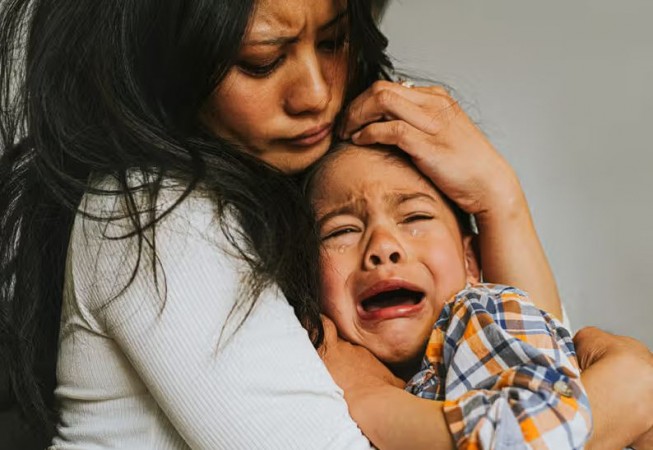
In today’s fast-paced environment, children are increasingly facing mental stress due to academic pressures, social expectations, and various external factors. As a parent, it’s crucial to recognize the signs of stress and anxiety in your child and to know how to provide the right support. Here’s a detailed guide on how to handle this situation effectively.
1. Recognize the Signs of Mental Stress
The first step in addressing your child’s mental stress is to be aware of the signs. Common indicators include:
Behavioral Changes: Look for increased irritability, mood swings, or withdrawal from social interactions.
Physical Symptoms: Complaints of headaches, stomachaches, or fatigue can often be manifestations of stress.
Academic Issues: A sudden drop in grades or lack of interest in schoolwork can signal underlying anxiety.
Changes in Sleep Patterns: Difficulty sleeping or excessive sleepiness can be signs of mental strain.
2. Open Lines of Communication
Create a safe space for your child to express their feelings. Here’s how:
Initiate Conversations: Approach your child with open-ended questions about their day and feelings.
Be an Active Listener: Listen attentively without interrupting. Show empathy and understanding, validating their feelings.
Encourage Expression: Let your child know that it’s okay to talk about their worries, whether big or small.
3. Provide Emotional Support
Your role as a parent is crucial in providing reassurance and emotional backing. Consider the following strategies:
Reassure Them: Remind your child that they are not alone and that you are there to support them through tough times.
Avoid Dismissing Their Feelings: Instead of saying "It's not a big deal," acknowledge their feelings and encourage them to share more.
Be Patient: Understand that it might take time for your child to open up fully. Give them the space they need.
4. Help Them Develop Coping Mechanisms
Teach your child healthy ways to manage stress. Here are some effective coping strategies:
Mindfulness and Relaxation: Introduce techniques such as deep breathing, meditation, or yoga to help them relax.
Physical Activity: Encourage regular exercise, which is known to reduce stress and improve mood.
Creative Outlets: Allow your child to express themselves through art, music, or writing, providing a constructive outlet for their feelings.
5. Set a Positive Environment
Creating a nurturing environment can significantly impact your child's mental health:
Establish Routines: Consistent daily routines provide a sense of security and stability for children.
Limit Screen Time: Monitor and limit exposure to screens, especially social media, which can contribute to anxiety.
Promote Healthy Relationships: Encourage friendships and social interactions that are supportive and uplifting.
6. Seek Professional Help When Necessary
If your child’s stress levels do not improve or worsen over time, consider seeking help from a mental health professional:
Therapy: A therapist can provide your child with coping strategies and tools to manage their anxiety.
Support Groups: Look for local or online support groups for children experiencing similar issues.
Consult Your Pediatrician: They can provide guidance and refer you to a specialist if needed.
Addressing mental stress in children requires awareness, empathy, and proactive support from parents. By recognizing the signs, maintaining open communication, and fostering a supportive environment, you can help your child navigate their feelings and develop resilience. Remember, it's essential to take mental health seriously, and seeking professional help is a valid and often necessary step in the process.
What Your Stool Says About Your Health
Overcome Vitamin B Deficiency with These Foods
How to Build Your Body at Home Without Going to the Gym: Expert Advice